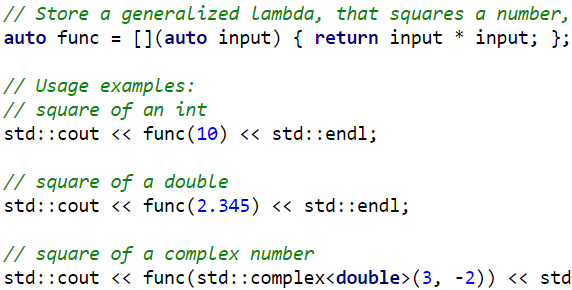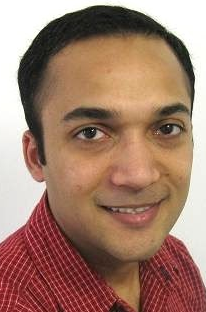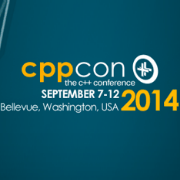C++14 is Ratified: The View from the June 2014 C++ Standard Meeting -- Michael Wong
An update on C++ standardization from Michael Wong, who is here at CppCon this week.
C++14 is Ratified: The View from the June 2014 C++ Standard Meeting
by Michael Wong
From the article:
We had one C++ Standard meeting since my last blog post for Issaquah Standard meeting, and that was in Rapperswil, Switzerland in June 16-21. ...
As I am writing this (which is much delayed due to workload and preparation for airplane time again as I begin my fall business trip after 2 months home working on a special project), I am back in [the Seattle area] to attend CPPCon giving 2 talks, 3 panels, and several interviews....


 Building on recent C++11 lambda tutorials we've linked to recently, here's one about the brand-new lambda features in C++14:
Building on recent C++11 lambda tutorials we've linked to recently, here's one about the brand-new lambda features in C++14: Here's a recent series that just got a new instalment today: It introduces template basics in a nicely explained and accessible way suitable for a gentle introduction, and then going on to progressively help the reader develop stronger template muscles.
Here's a recent series that just got a new instalment today: It introduces template basics in a nicely explained and accessible way suitable for a gentle introduction, and then going on to progressively help the reader develop stronger template muscles. More rapid-fire "now write this using lambdas" problem-solution drill with Sumant Tambe:
More rapid-fire "now write this using lambdas" problem-solution drill with Sumant Tambe: CppCon minus one week:
CppCon minus one week: In case you missed it:
In case you missed it: